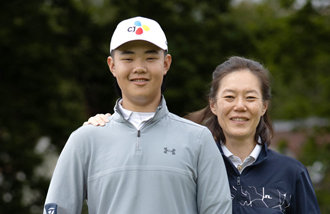KAISTs Tenure System
Some might say that our tenure system is harsh on faculty members. But it is the only way to boost our global competitiveness, said Jang Sun-heung, deputy president of KAIST, yesterday. He headed the controversial first tenure deliberations of KAIST, which disqualified 43 percent of the professors who applied for tenure.
A tenure system guarantees those who pass deliberation on research achievement employment until retirement, but dismisses those who fail the deliberation. Most universities in advanced countries already have this system in place to enhance the competitiveness of their faculty. Probably mindful of controversies over the recent deliberation, Jang stressed, To compete with prestigious universities in the world, we need to secure large numbers of professors with international reputations. To that end, we should firmly establish a tenure system which encourages faculty to do research.
Q: Why did you strengthen the tenure system significantly?
A: If the 20th century was the era of competition among workers, the 21st century is the era of competition among people with knowledge. A countrys fate is determined by how much people with knowledge generate added value. Therefore, it is more crucial than ever to encourage professors, typical people with knowledge, to work hard. The tenure system is a shortcut to help professors enhance their capacity by working hard.
Q: How is the reality of Korean universities?
A: Talented university students are increasingly going away to prestigious universities abroad to earn their masters or doctorate degrees. They weigh going top domestic schools but go abroad in the end. For this reason, some Korean top universities are labeled as feeder schools, which provide students to overseas universities. Korean students choose overseas schools because domestic universities do not teach well.
Q: What were the criteria?
A: There were three. First was the review letter from 10 scholars at home and abroad in related fields that professors and the school designated. We considered the letters from overseas scholars more objective. Second was research achievement and dissertations, assessment of lectures (including those from students) and track record of winning research expenses. Lastly, we reflected the outcome of discussion among members of the personnel committee.
Q: What effects do you expect from the bolstered tenure system?
A: First, faculty members will work hard. Otherwise, they cannot survive. They will come up with better ideas, focus on research, and prepare their lectures more enthusiastically. Moreover, they will make an effort to earn international reputations. KAISTs tenure system values international reputations and recognition. In an era of global competition, you need international reputation.
Q: Some say that your system is too harsh on KAIST faculty who are superior to other universities.
A: Id like to emphasize once again that the system is designed to compete with top universities overseas. If we only considered competition with domestic universities, we would not have bolstered the tenure deliberation process. We would have just improved rewards for competitive members of our faculty.
Q: Did you meet those who failed in the tenure deliberation?
A: They were shocked and having a hard time coping with the news. That is why KAIST President Suh Nam-pyo instructed them to keep the deliberation outcome a secret. It seems that the shock was particularly great to 50-something professors who lost their jobs to those in their 30s and 40s. I felt sorry for them personally, but we had to stick to the criteria based on performance.
Q: You must have faced considerable opposition.
A: As we made a fair assessment based on research achievements, ignoring age and personal connection and background, we can deal with any question. Our tenure system should be successfully established. That is a move in the right direction for Korea. Five years from now, the system will be stabilized. Ten years from now, it will be firmly established. There were many comments posted to the Dong-A Ilbo article about our tenure system, and most of them were encouraging.
Q: What should be done to firmly establish the system?
A: We need to step up support for the faculty, while keeping deliberation strict. We employed new professors this year on the condition that they must undergo a tenure deliberation within eight years of their employment and that they have to leave if disqualified. In return, we granted 250 million won of research money to each of our new professors. That means that they should focus on their research by building a conducive environment quickly and undergo an assessment. The government, for its part, should also concentrate their support on universities, which conduct strong reforms, rather than distributing the same amount of resources to every school. Reform should be the key criteria in assessing universities.
mhjee@donga.com







